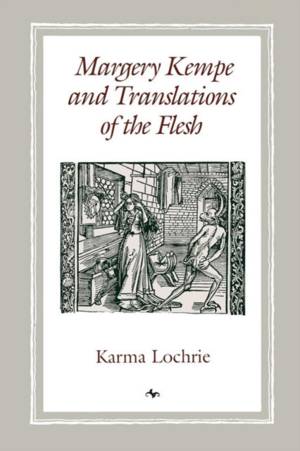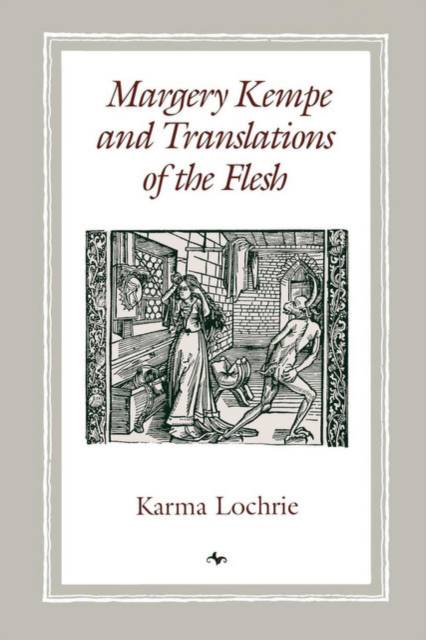
- Afhalen na 1 uur in een winkel met voorraad
- Gratis thuislevering in België vanaf € 30
- Ruim aanbod met 7 miljoen producten
- Afhalen na 1 uur in een winkel met voorraad
- Gratis thuislevering in België vanaf € 30
- Ruim aanbod met 7 miljoen producten
Zoeken
€ 60,95
+ 121 punten
Omschrijving
Selected by Choice magazine as an Outstanding Academic Book for 1999
Karma Lochrie demonstrates that women were associated not with the body but rather with the flesh, that disruptive aspect of body and soul which Augustine claimed was fissured with the Fall of Man. It is within this framework that she reads The Book of Margery Kempe, demonstrating the ways in which Kempe exploited the gendered ideologies of flesh and text through her controversial practices of writing, her inappropriate-seeming laughter, and the most notorious aspect of her mysticism, her "hysterical" weeping expressions of religious desire. Lochrie challenges prevailing scholarly assumptions of Kempe's illiteracy, her role in the writing of her book, her misunderstanding of mystical concepts, and the failure of her book to influence a reading community. In her work and her life, Kempe consistently crossed the barriers of those cultural taboos designed to exclude and silence her. Instead of viewing Kempe as marginal to the great mystical and literary traditions of the late Middle Ages, this study takes her seriously as a woman responding to the cultural constraints and exclusions of her time. Margery Kempe and Translations of the Flesh will be of interest to students and scholars of medieval studies, intellectual history, and feminist theory.Specificaties
Betrokkenen
- Auteur(s):
- Uitgeverij:
Inhoud
- Aantal bladzijden:
- 268
- Taal:
- Engels
- Reeks:
Eigenschappen
- Productcode (EAN):
- 9780812215571
- Verschijningsdatum:
- 1/11/1994
- Uitvoering:
- Paperback
- Formaat:
- Trade paperback (VS)
- Afmetingen:
- 148 mm x 227 mm
- Gewicht:
- 421 g

Alleen bij Standaard Boekhandel
+ 121 punten op je klantenkaart van Standaard Boekhandel
Beoordelingen
We publiceren alleen reviews die voldoen aan de voorwaarden voor reviews. Bekijk onze voorwaarden voor reviews.







